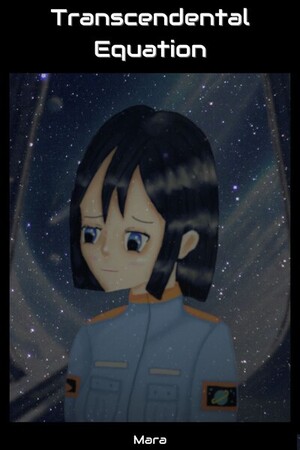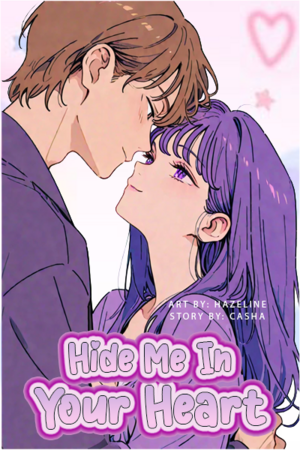Chapter 7:
The Truth Imprisoned
The Mirror’s Soul
The new moon had plunged Kyoto into a peculiar darkness. The city had fallen asleep. In his studio, Isao handled his glass plates with intense concentration, preparing them meticulously. He had purified his equipment and modified the composition of the collodion following the old master’s teachings — incorporating, notably, mugwort which, according to Shinto tradition, facilitated communication with spirits.
This night was special. Something in the air — a nearly tangible heaviness — suggested that the veil between worlds had thinned. With his hands slightly trembling, Isao finished his chemical preparation, then lit the herbs entrusted to him by Hiroshi. A fragrant smoke rose, forming dancing swirls that seemed to caress the silvery glass of the large Victorian mirror. Its surface appeared more alive than ever, undulating imperceptibly like water disturbed by an invisible breeze.
"Lucille, whispered him in the silence of the studio. What is your story? What happened to you?"
He exposed the first plate, holding his breath through the long seconds that followed. Time seemed to stand still. When he developed it in his laboratory, the image that emerged made him stagger. It was no longer a mere feminine silhouette but a complete scene: Lucille, seated in a richly decorated Parisian salon, posing for a portrait. Her face, strikingly clear, expressed a serenity mixed with apprehension. Behind her, barely visible yet undeniably present, stood a man with a somber gaze.
Isao frantically prepared a second plate, then a third. Each new image appeared to continue the previous one, like fragments of a silent narrative, the sequences of a mute film from another era. The fourth plate revealed Lucille rising, visibly disturbed. The fifth showed her facing the man, who now held a brush as if it were a weapon. Adrien Rousseau — the rejected painter spoken of by the antiquarian.
Isao’s hands worked in a creative trance. Never before had he felt such a connection with his art, as if each plate he prepared was a bridge cast over the centuries. The sixth image depicted Lucille trying to escape from the painter’s studio, her features distorted by fear. The seventh, Adrien holding her by the wrist, his face transformed by a devouring rage.
In the eighth image, the atmosphere changed. The painter’s studio had transformed. Strange symbols adorned the floor and walls. Black candles formed a circle around a mirror — the very same mirror that now reigned in Isao’s studio. His blood turned to ice when he recognized the object. It was no coincidence. The mirror had been the instrument of the ritual.
The ninth plate showed Adrien reciting words, an ancient book in his hands. Shadows seemed to dance around him, like entities summoned from an ineffable elsewhere. Lucille was forcibly held before the mirror, her expression frozen in absolute terror.
The tenth plate, with a supernatural clarity, captured the precise moment when something unspeakable occurred. Isao’s stomach contracted abruptly. The blood drained from his face. A sticky heat filled his palms.
Lucille’s silhouette appeared to split, part of her being sucked into the mirror’s surface as her body gradually faded, becoming translucent.
Isao had to sit down, breathless. What he saw defied understanding. These were not mere images, but fragments of an imprisoned memory, echoes of a forgotten crime. Lucille had not died as the newspapers of the time had assumed. She had suffered a far more terrible fate — the imprisonment of her soul, separated from her body, condemned to wander the reflected limbo of the mirror.
The eleventh image showed Adrien facing the mirror, smiling with a sickly joy as the trapped reflection of Lucille pounded desperately against the glass surface. On the twelfth, finally, the painter appeared in a dark place — the catacombs of Paris, recognizable by their walls lined with human bones. He fixed his gaze on the lens, his eyes twisted with a disturbing gleam, a cruel sneer on his lips, as if speaking directly to Isao, defiant and ready to savor his suffering.
As he stared at this last image, Isao sensed a presence behind him. Spinning around abruptly, he saw a bluish light emanating from the mirror. He approached it cautiously. The reflection was no longer his own but that of Lucille, more alive than ever. She pressed her hands against the transparent surface, as if trying to cross it.
"I understand now," whispered Isao in Japanese, though he knew she could not understand him. "What he did to you…"
Lucille seemed to read his lips. She slowly nodded, then urgently pointed toward the photographic plates, then to her own chest, and finally to an imaginary watch at her delicate, nacreous wrist.
The message was clear: time was running out.
Isao then understood that Adrien’s ritual was not merely an act of impulsive cruelty. It was a cold calculation, an attempt to eternally possess Lucille’s beauty — to transform her into a living work of art, the key to which he alone would hold. In his all-consuming jealousy, unable to accept that she could pose for other artists, he had chosen to imprison her rather than lose her.
Leaning over the plates, Isao noticed details he had not seen initially. In the ritual circle drawn by Adrien, symbols evoked the lunar phases. Others seemed linked to specific constellations. The ritual was tied to time, to celestial cycles. Which meant…
Isao rushed to his computer, frantically searching for information on astral alignments. If the ritual was connected to lunar and stellar cycles, then Lucille’s imprisonment might have a defined duration. A temporal prison with an expiration date — or worse, a date after which the imprisonment would become irreversible.
His fingers flew over the keyboard as he compared the symbols in the photographs with ancient astrological diagrams. A correspondence emerged from occult forums, confirming his fears. Adrien’s ritual appeared linked to a 180-year cycle — a rare planetary alignment that would recur in less than a year.
If Lucille was not freed before that alignment, her soul would be permanently trapped in the mirror, with no possibility of return. Or she might, unfortunately, vanish forever.
Isao felt his heart race. A few months. That was all he had to figure out how to reverse a 19th-century occult ritual, practiced in Paris by a painter driven mad by jealousy. The task seemed insurmountable.
Turning to the mirror, he saw that Lucille seemed to understand his discovery. Her expression reflected a painful resignation, as if she had always known her prison had a temporal limit. Yet something in her gaze had changed — a spark of hope, perhaps, born of the unprecedented connection they had established that night.
Isao pressed his hand against the cold mirror surface. On the other side, Lucille did the same. For a fleeting moment, he thought he could feel the warmth of her palm through the glass. His doubts were confirmed: this was no longer merely an artistic quest or a paranormal curiosity. It had become a mission — a moral imperative.
As their eyes met without breaking contact, a strange dissonance set in. In the mirror, his reflection seemed slightly delayed, like an out-of-sync image. The air around them grew heavier, charged with an imperceptible tension.
A shadow slid along the wall, fleeting — as if moving at the edge of his vision. Yet nothing else stirred.
Outside, a dull noise resonated — perhaps a door slamming, or a shutter clattering under a gust of wind. A mundane sound, almost reassuring, that contrasted sharply with the hushed strangeness of the room. Isao stiffened. The normalcy of the outside world seemed to belong to another reality, far from this timeless bubble in which he was trapped at that moment, facing Lucille and the mirror that barely distorted his reflection.
"I’ll get you out of here," he promised in a whisper. "No matter what it takes."
In the mirror, Lucille’s silhouette seemed to briefly light up, as if touched by an invisible sunbeam. Then, slowly, she nodded and silently uttered words that Isao could not understand. But the message transcended linguistic barriers: a gratitude mixed with warning.
For behind her, almost imperceptible in the depths of the mirror, another presence was forming. A male silhouette, its outlines blurred but with an unsettlingly sharp gaze. Adrien. He observed their exchange, his expression oscillating between anger and a morbid fascination.
Isao stepped back, suddenly aware that their communication had not gone unnoticed. The painter, in some way, still existed in the mirror’s limbo. And he would not easily abandon his captive.
The night stretched on, long and tense, as Isao studied the photographs spread out before him. Each was a fragment of truth, a piece of the macabre puzzle he had to solve. Time was running out. And somewhere, in the depths of the mirror, two souls from another century awaited — one hoping for deliverance, the other determined to preserve its glass prison for eternity.




Please sign in to leave a comment.